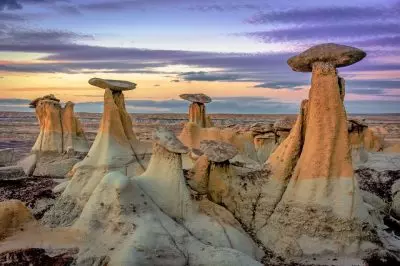 The Pueblo of Pojoaque claims that it lost gambling revenue amounting to nearly $9 million due to state Government’s actions against vendors which do business with local casinos during a long-lasting legal fight over the gambling compact between the pueblo and the state of New Mexico.
The Pueblo of Pojoaque claims that it lost gambling revenue amounting to nearly $9 million due to state Government’s actions against vendors which do business with local casinos during a long-lasting legal fight over the gambling compact between the pueblo and the state of New Mexico.
The court battle began after the expiration of the old compact of Pojoaque with the state, as the pueblo objected against inking a new compact under which the state of New Mexico would get a larger chunk of the pueblo’s slot machine revenues.
Things did not end here. While the dispute was still ongoing, Pojoaque Pueblo started another court action, claiming that vendors such as suppliers of gambling machines were threatened to be punished by the state in case that they continued to work with it. The state of New Mexico, on the other hand, claimed that the casinos in the pueblo were operated illegally, as a new compact was not signed.
February 2017 saw a federal judge agree with the administration of Governor Susana Martinez and ruled that the state could actually start a legal pursue against the above-mentioned vendors for trading with the local gambling businesses, as the pueblo is obliged to offer its casino operations under a compact with New Mexico.
Pojoaque Suffers a Decline Due to Ceased Business Relationships
 As far as Pojoaque revenue decline is concerned, a court filing in the pueblo’s latest court battle with the state government says that there was a sudden decline in the revenue registered after gaming vendors were warned for the possible fines they could face for doing business with the pueblo. The direct and consequential net revenue losses reported by Pojoaque due to the ceased business relationships with some gaming vendors amount to a total of $8.84 million.
As far as Pojoaque revenue decline is concerned, a court filing in the pueblo’s latest court battle with the state government says that there was a sudden decline in the revenue registered after gaming vendors were warned for the possible fines they could face for doing business with the pueblo. The direct and consequential net revenue losses reported by Pojoaque due to the ceased business relationships with some gaming vendors amount to a total of $8.84 million.
The two parties eventually reached an agreement. In August 2017, the pueblo and the state of New Mexico finally signed a compact which was the same other tribes had previously agreed to. This came after a few federal appeals of the court’s refusal to reconsider its previous ruling that the pueblo had to go to the negotiations table with state representatives instead of negotiating with the federal government.
Under the new compact, the state’s share of tribal slots revenue was increased from 8% to 9%, with higher rates over the next decades set to be imposed. Previously, the pueblo was willing to lower the minimum age for gambling and eliminate the ban on serving alcohol in gambling areas.
Despite the fact that a new compact was signed between Pojoaque and the state, the two parties now continue their legal battle over another issue regarding the fate of the money which is deposited by the pueblo in a trust account over two years as a substitute of the state’s share of slot machine revenue.
After the previous compact expired in 2015, the US Attorney Damon Martinez agreed to give the green light to Pojoaque to continue offering its gaming services even without a signed agreement during the litigation process. The only condition was that the pueblo had to make put the money it owed to the state in the trust fund, which accumulated a total amount of $10.1 million, with the money being seized by the federal government in March.